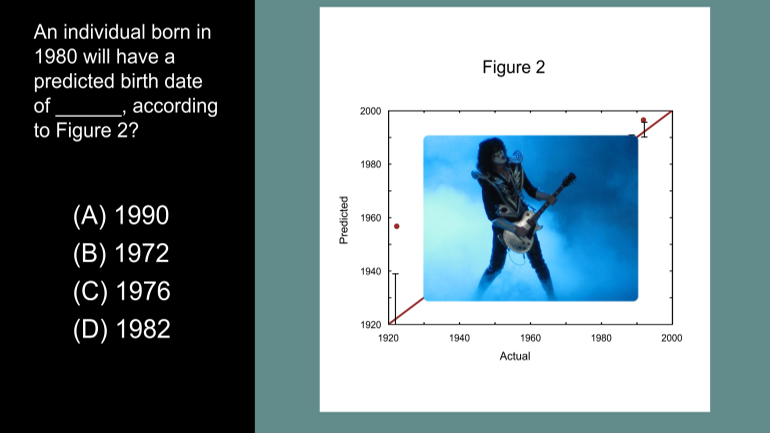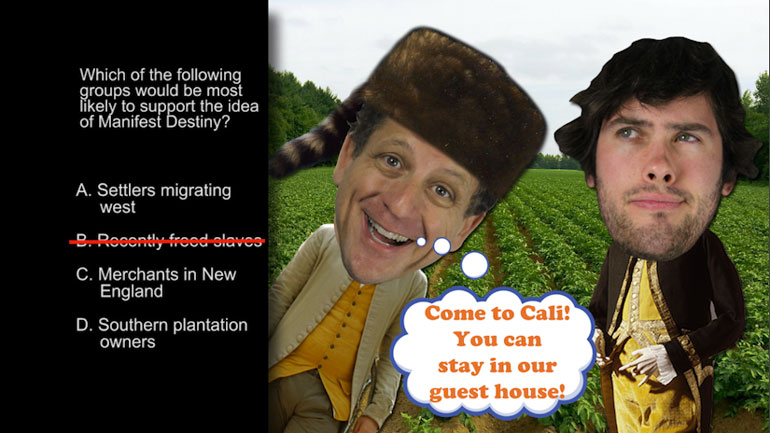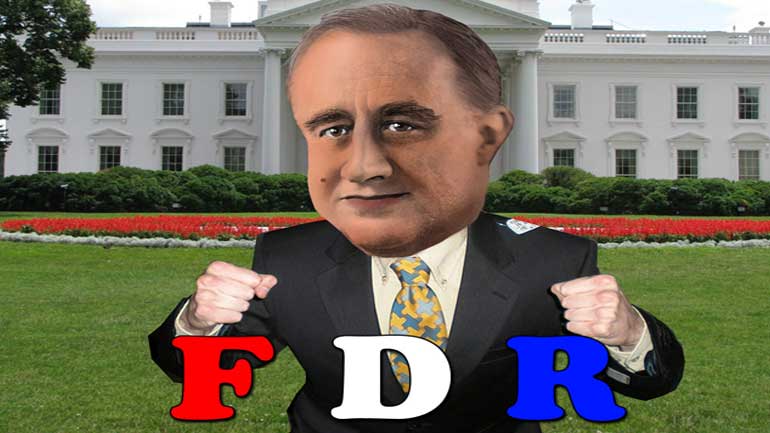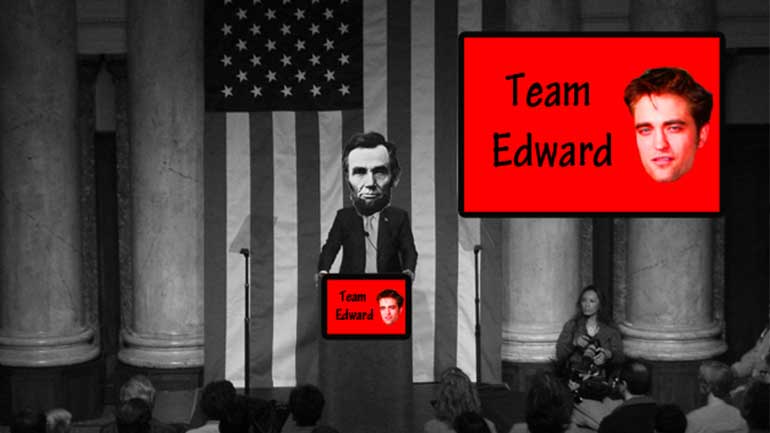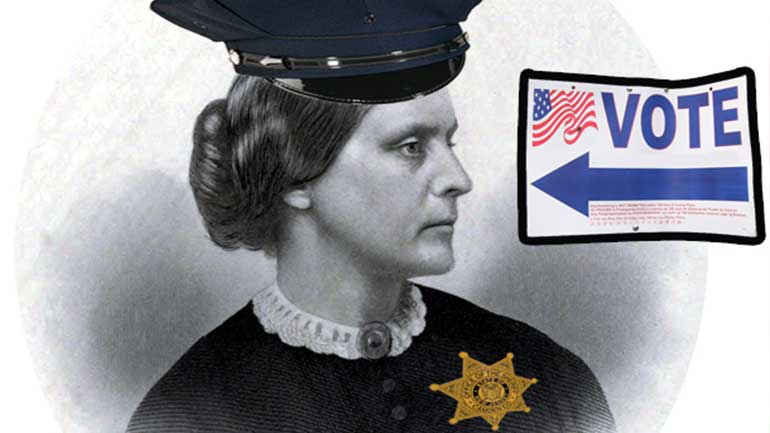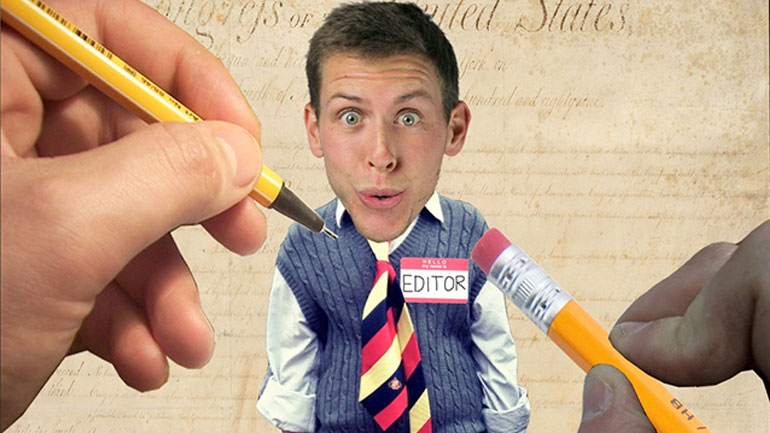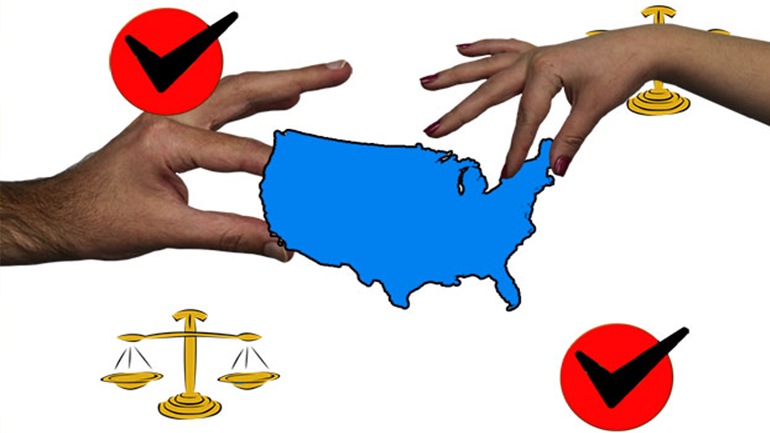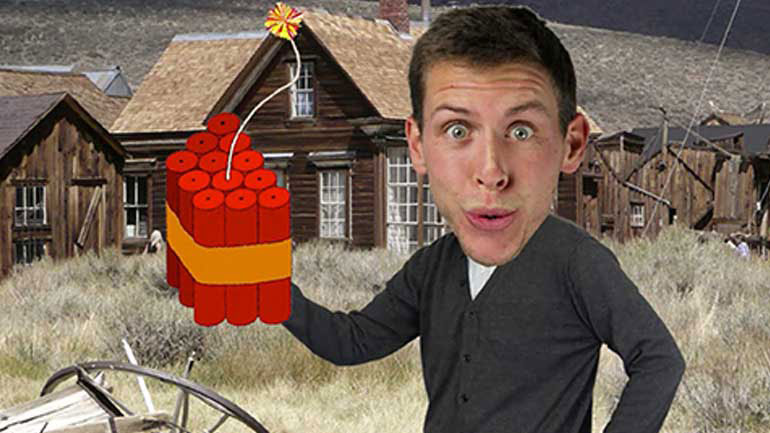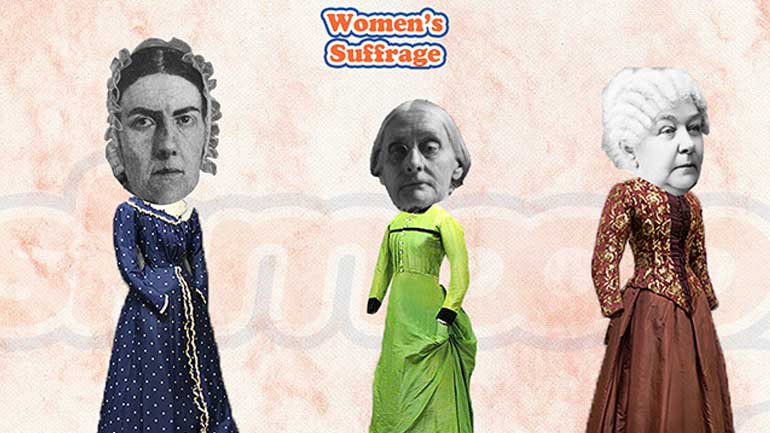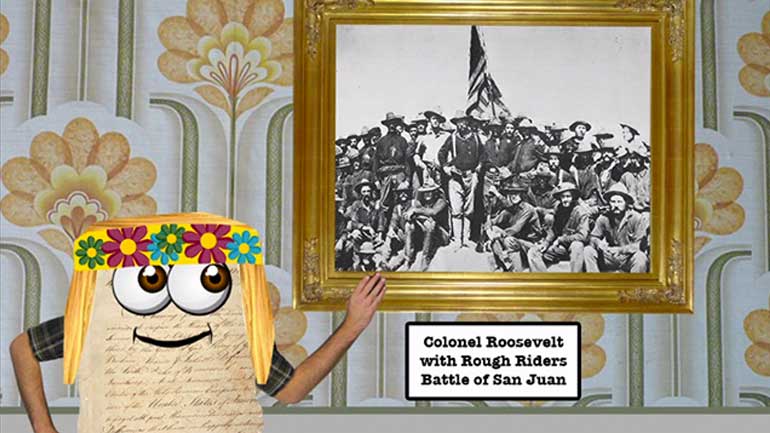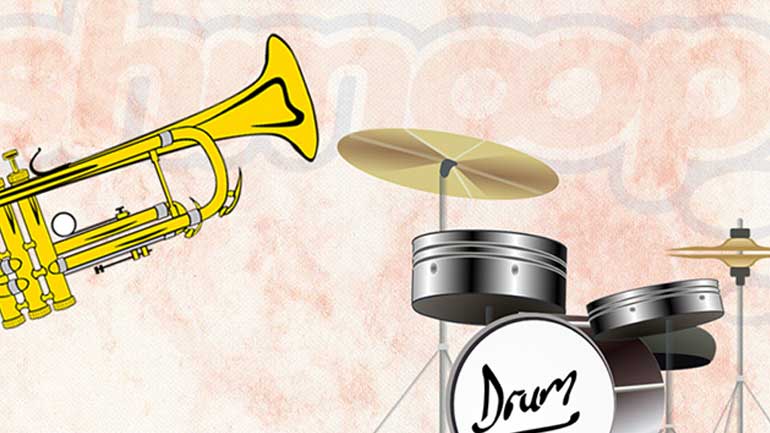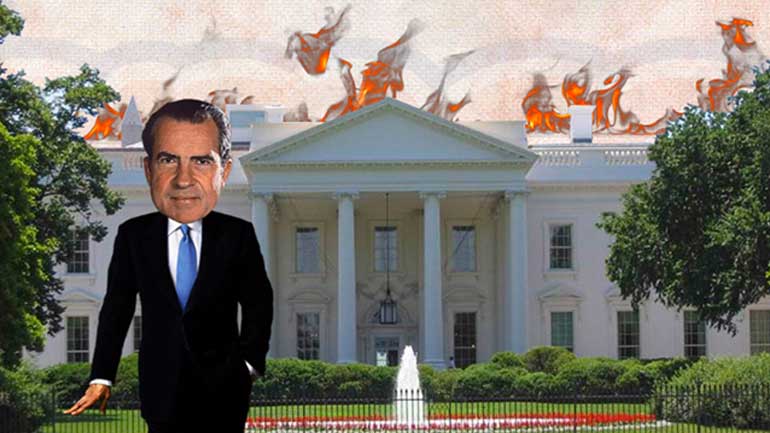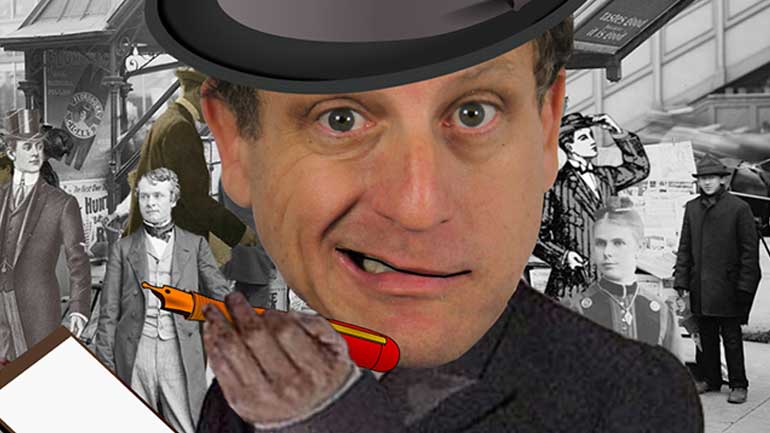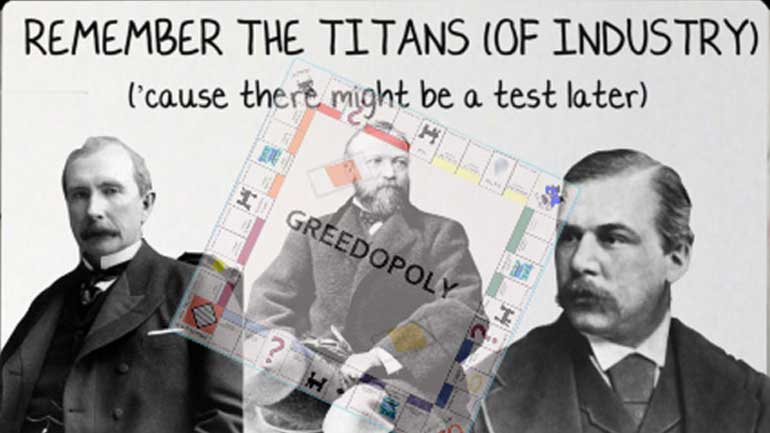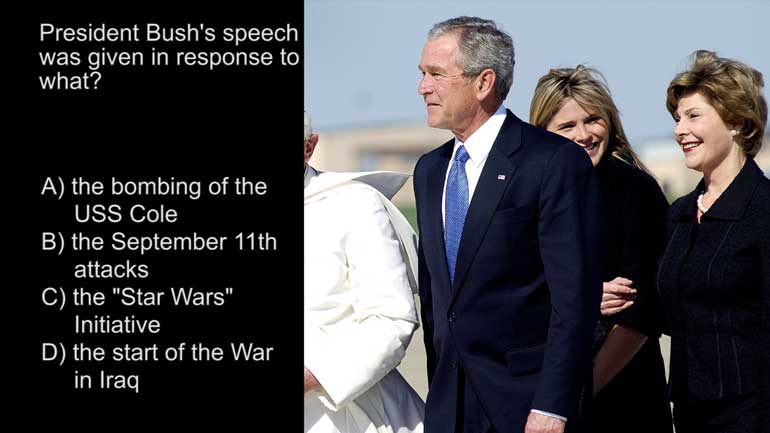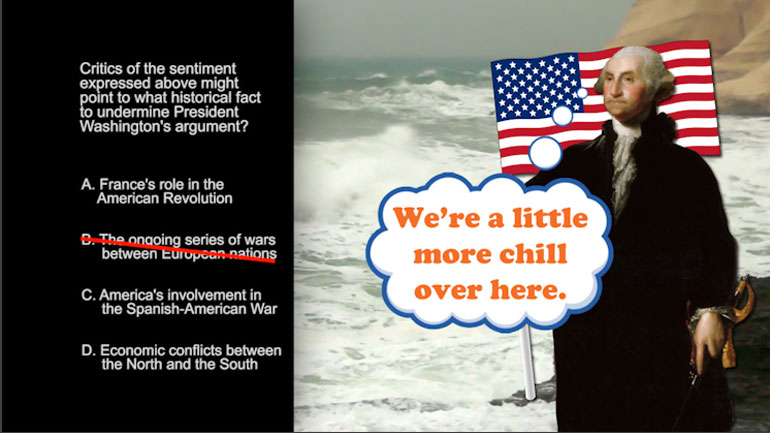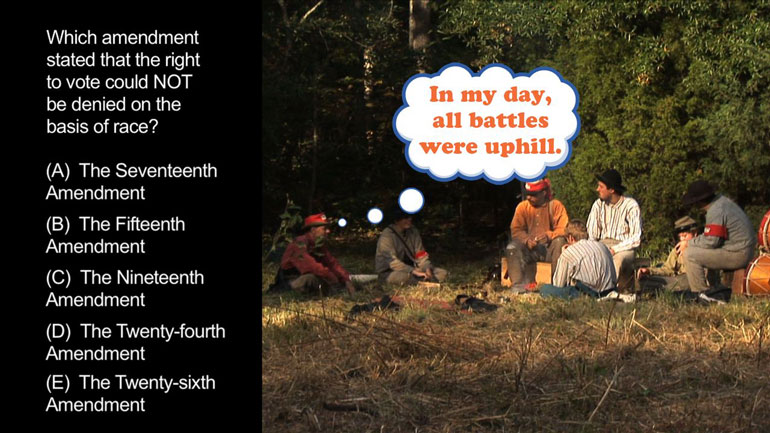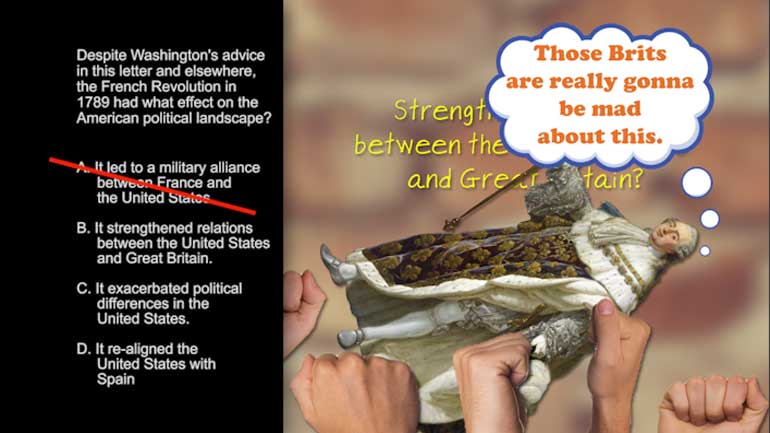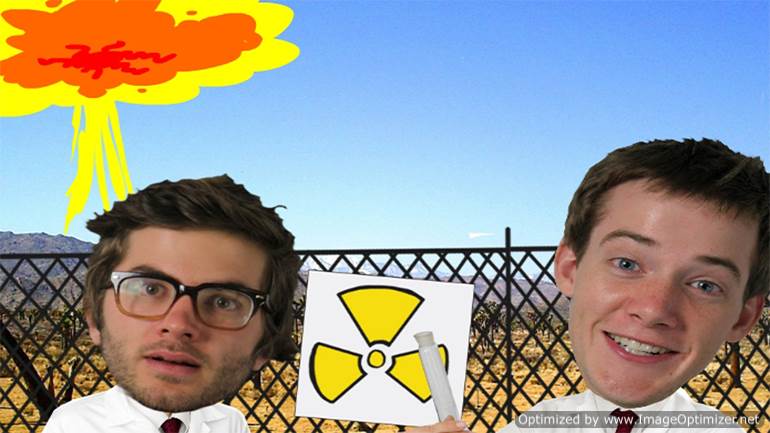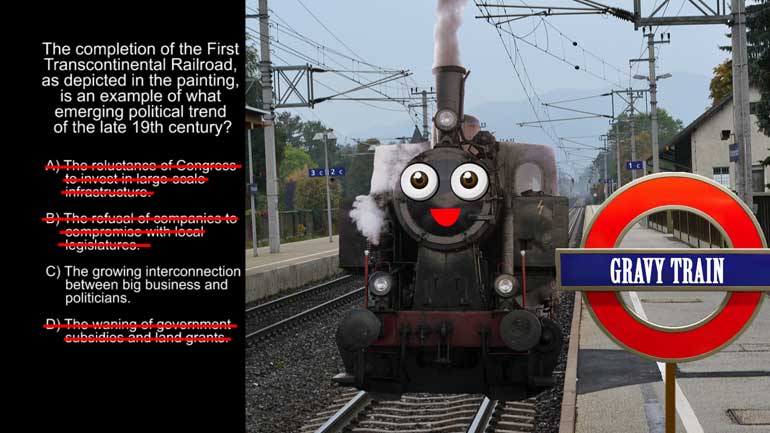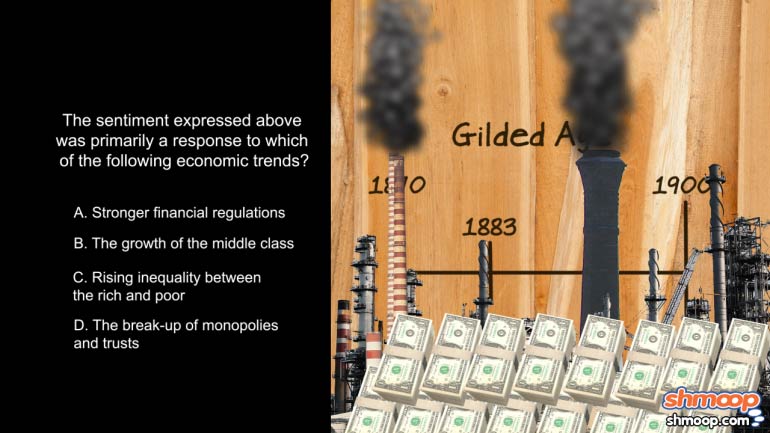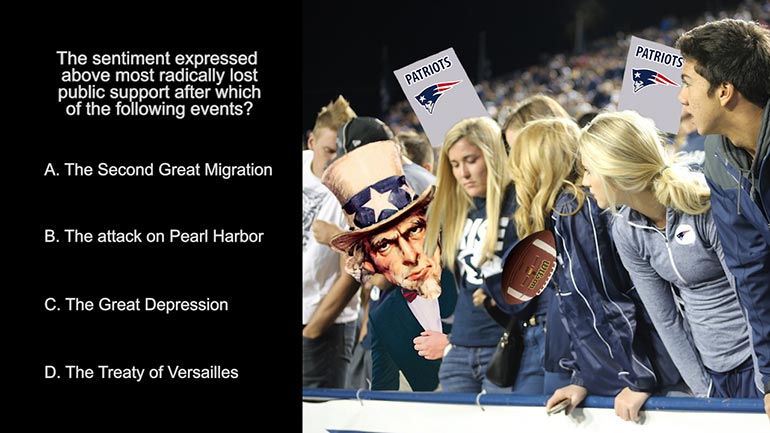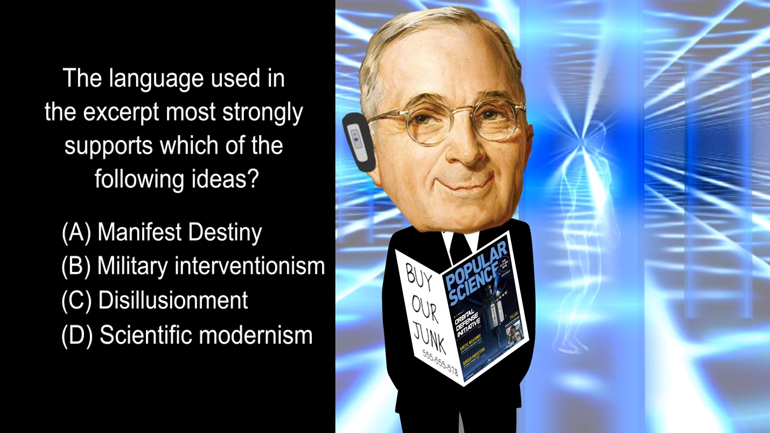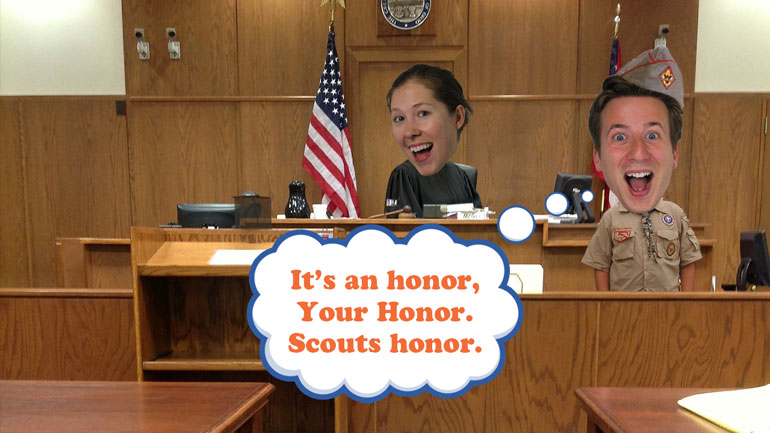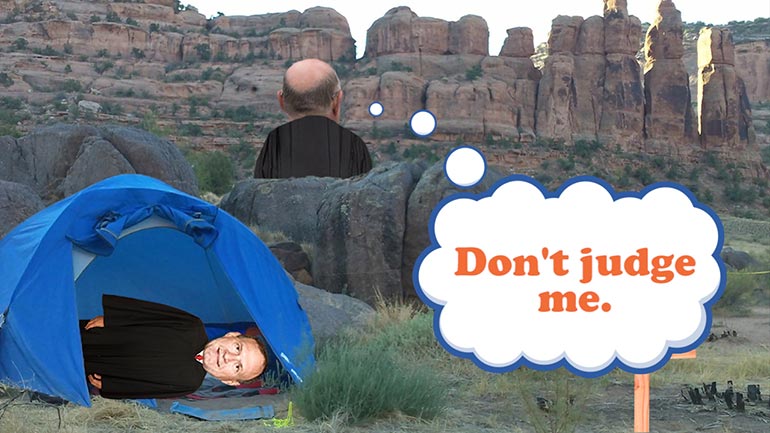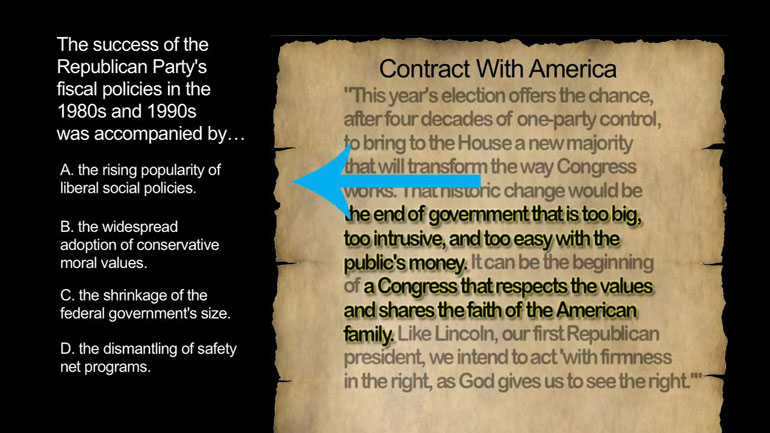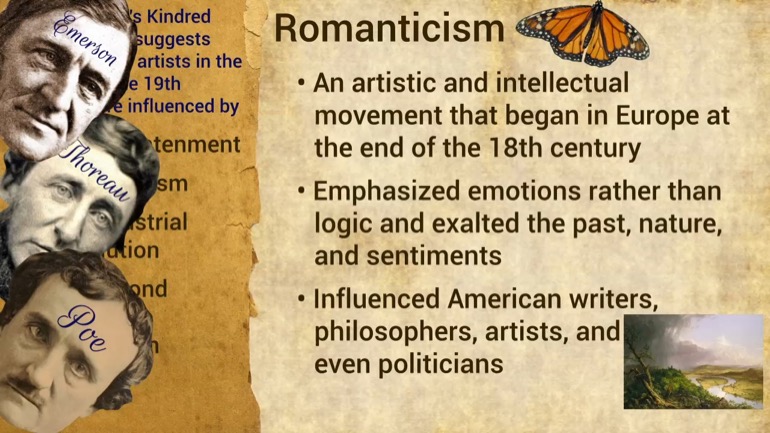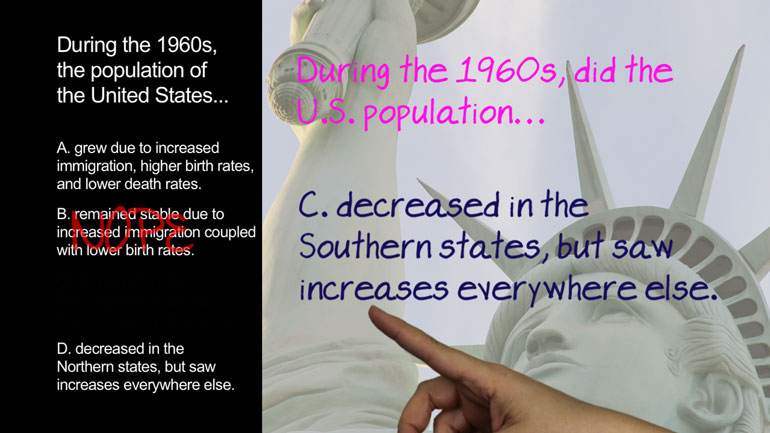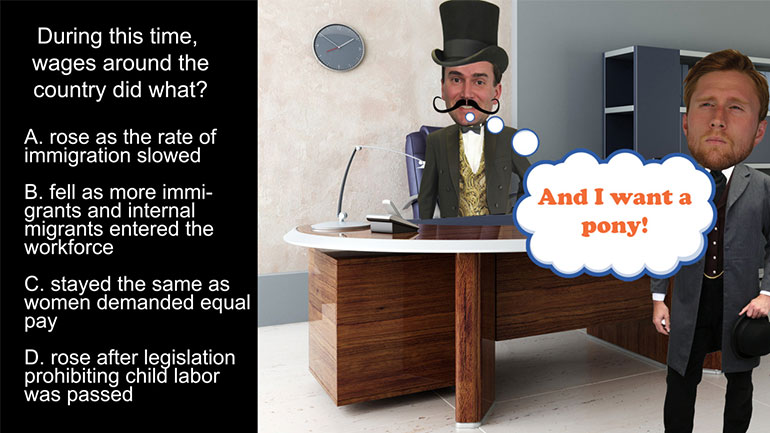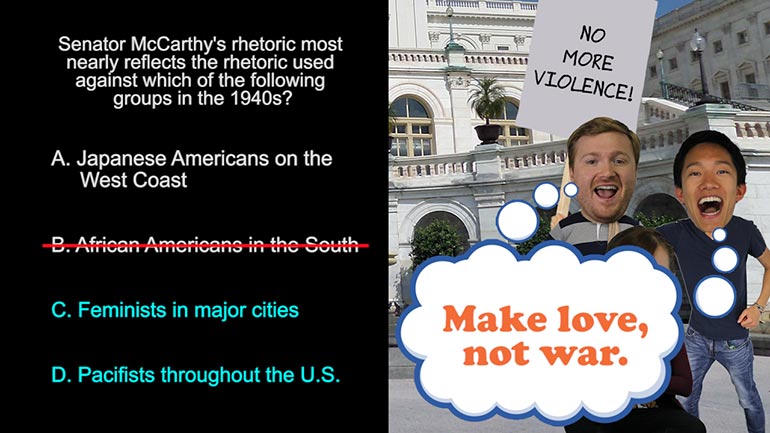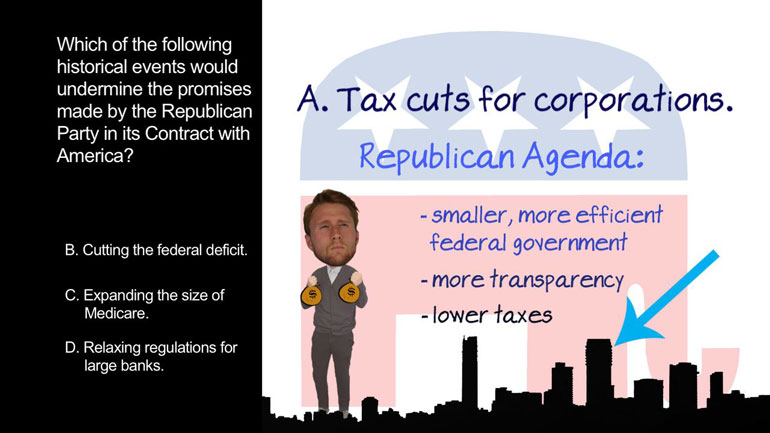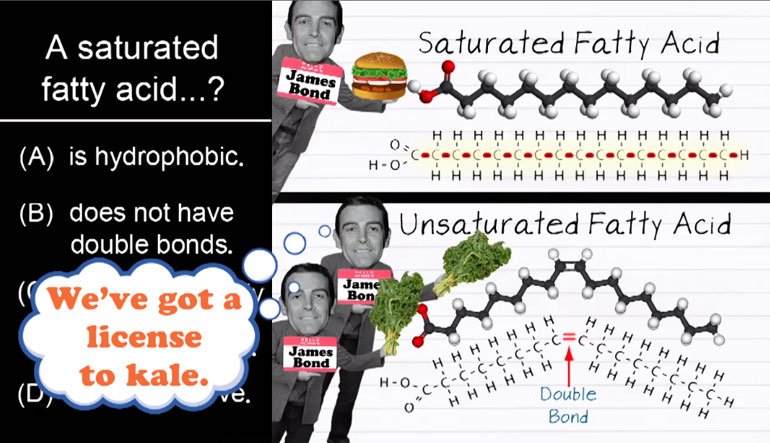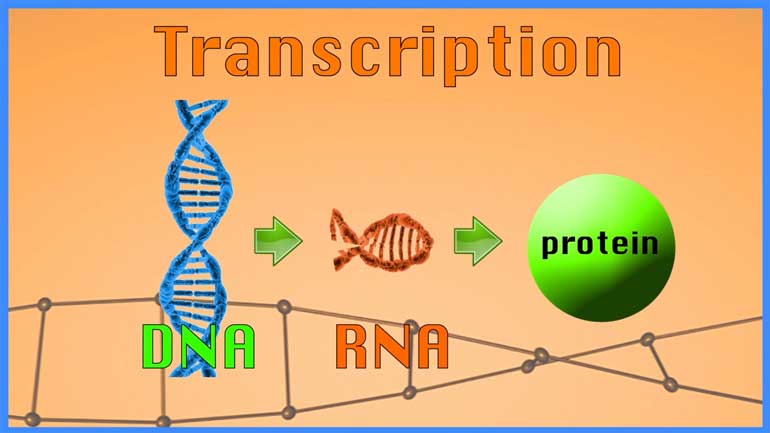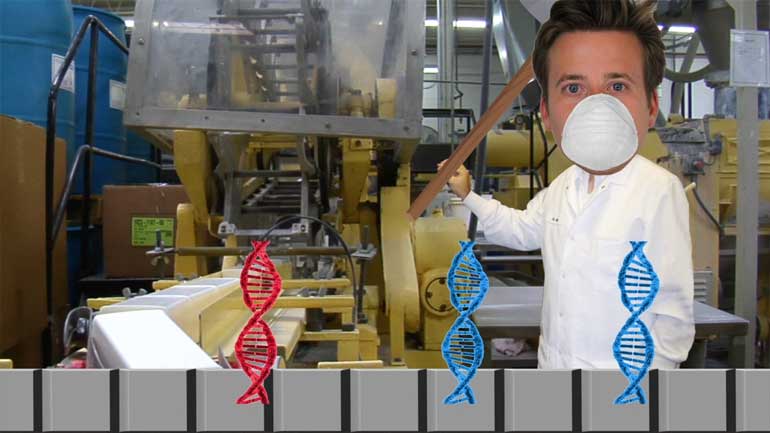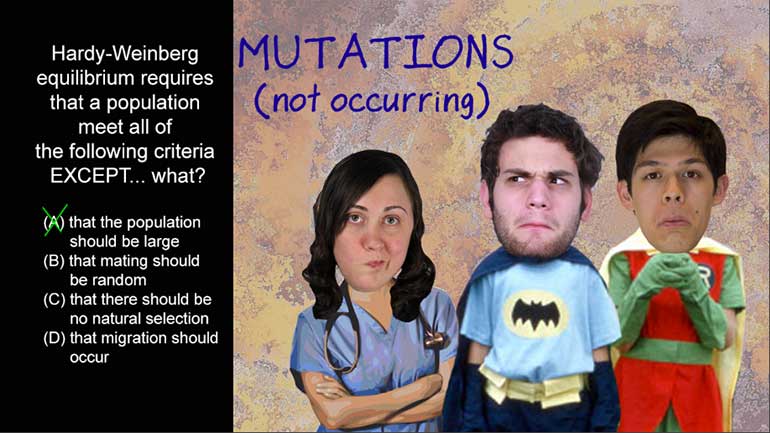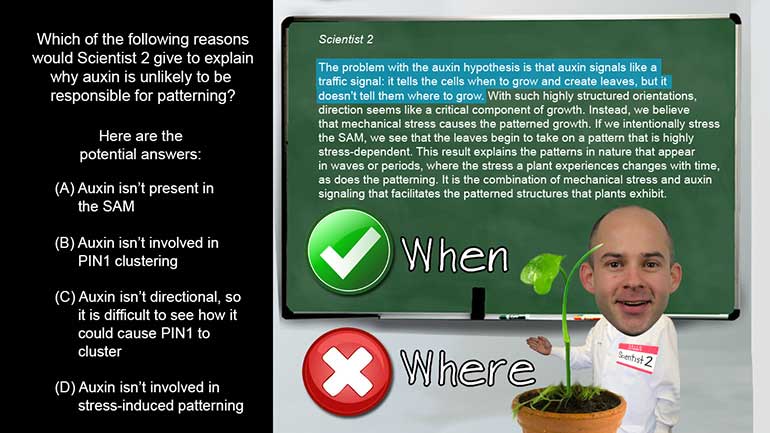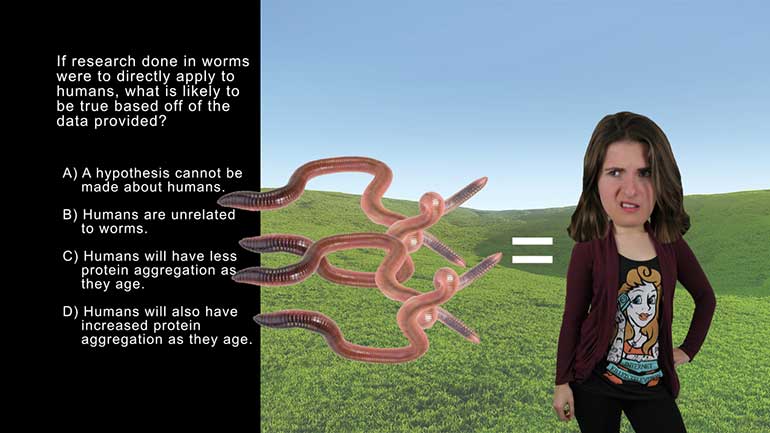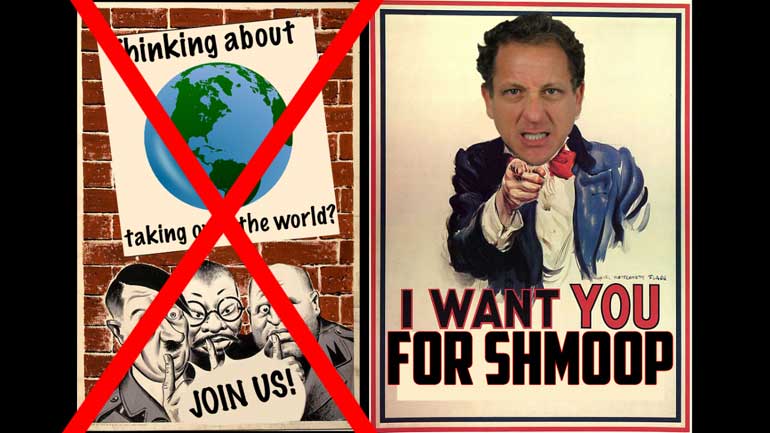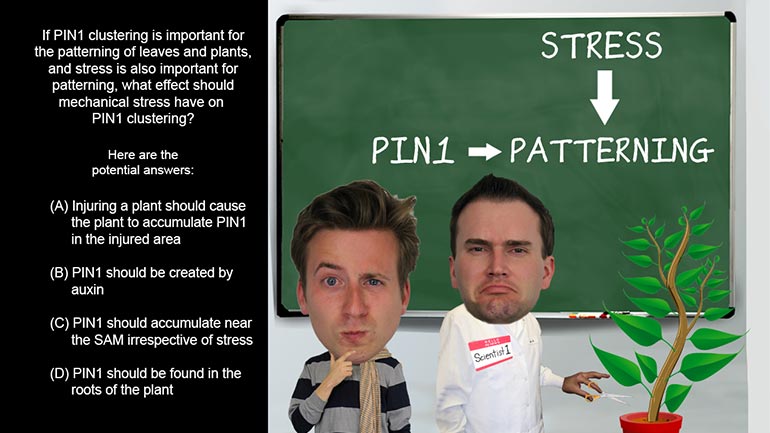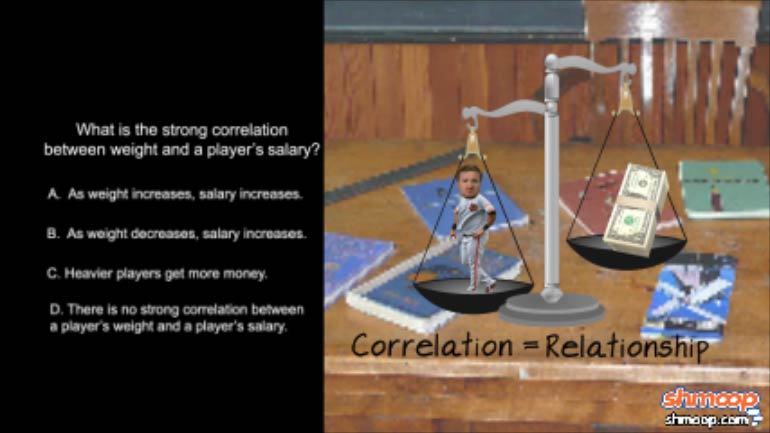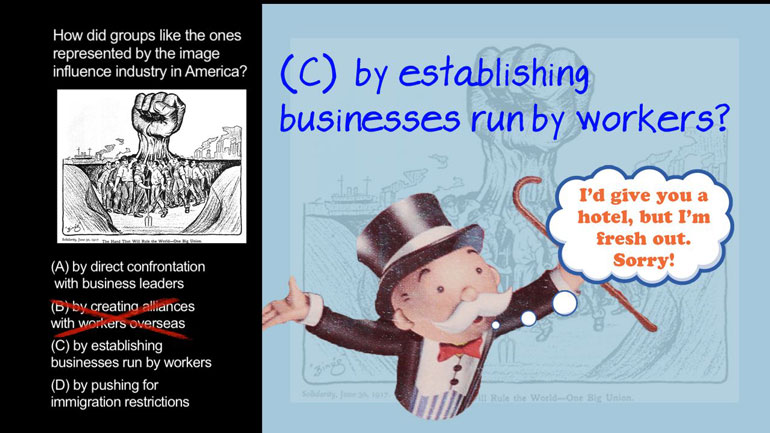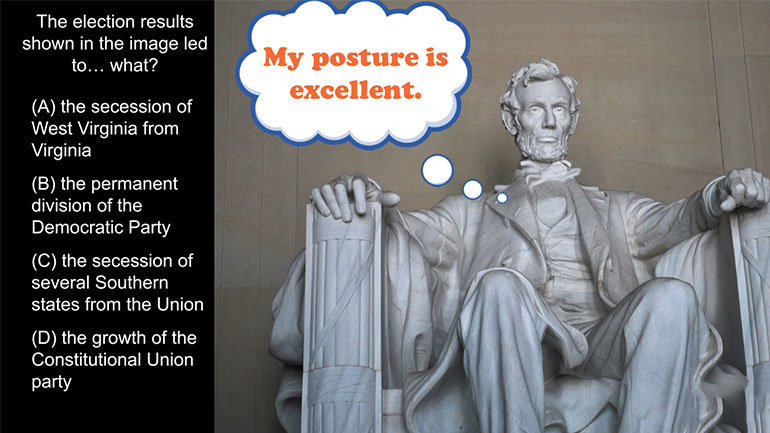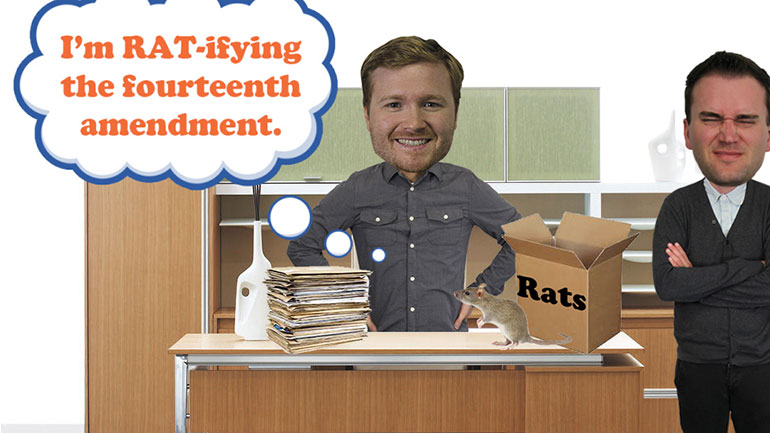ShmoopTube
Where Monty Python meets your 10th grade teacher.
Search Thousands of Shmoop Videos
Texas EOC Videos 540 videos
ACT Science: Data Representation Passage Drill 1, Problem 1. What do the statistics in Figure 1 suggest?
ACT Science Data Representation Passage: Drill 3, Problem 5. According to Figure 2, what birth date will be predicted for an individual actual...
ACT Science: Research Summary Passage Drill 2, Problem 1. Why do you think that the filter paper will not remove the salt from the water?
AP U.S. History 1.1 Period 9: 1980-Present 266 Views
Share It!
Description:
AP U.S. History 1.1 Period 9: 1980-Present. The success of the Republican Party's fiscal policies in the 1980s and 1990s was accompanied by...what?
Transcript
- 00:00
[ musical flourish ]
- 00:03
And here's your Shmoop du jour, brought to you by the contract with America,
- 00:07
Uncle Sam's army endorsement deal.
- 00:12
Take a look at this excerpt.
- 00:13
[ mumbles ]
Full Transcript
- 00:16
[ mumbling continues ] Republican Party.
- 00:19
And the question:
- 00:20
The success of the Republican Party's fiscal policies
- 00:23
in the 1980s and 90s was accompanied by... what?
- 00:27
And here are your potential answers.
- 00:29
[ meow ] [ mumbling ]
- 00:33
All right. We can see in the excerpt that the Republican Party
- 00:35
wanted "the end of government that is too big, too intrusive,
- 00:39
and too easy with the public's money."
- 00:42
They also wanted "a Congress that respects the values
- 00:45
and shares the faith of the American family."
- 00:48
Well, let's check out the answers to see whether or not
- 00:50
Republicans were able to close this
- 00:53
contract with America.
- 00:54
In the 1980s and 90s,
- 00:56
was the success of the Republican Party's
- 00:58
fiscal policies accompanied by
- 01:01
B - the widespread adoption of conservative moral values?
- 01:05
Hmm. Well, with more women entering the workforce
- 01:08
and the spread of nontraditional households,
- 01:10
the 80s and 90s didn't quite see the mass acceptance
- 01:13
of conservative moral values.
- 01:17
So it's a no-go on B.
- 01:18
Was Republican fiscal success joined by
- 01:21
C - the shrinkage of the federal government's size?
- 01:25
Well, actually, despite the Republicans' small government rhetoric,
- 01:28
the federal government actually grew in these decades,
- 01:31
partly due to the durability of social safety nets
- 01:33
like Social Security and Medicare.
- 01:37
So not so much shrinkage as, well, the opposite of shrinkage.
- 01:40
And that knocks out C and D.
- 01:43
Which means that the success of the Republican Party's
- 01:45
fiscal policies in the 80s and 90s was accompanied by A -
- 01:49
the rising popularity of liberal social policies.
- 01:53
Even with the so-called moral majority platform,
- 01:55
the U.S. continued its trend toward liberal social views
- 01:59
in the 1980s and 90s.
- 02:02
In 1992, the Supreme Court reaffirmed a woman's
- 02:04
constitutional right to an abortion,
- 02:06
and despite the passage of Don't Ask, Don't Tell,
- 02:09
gays and lesbians gained more mainstream acceptance
- 02:13
during this time.
- 02:17
So A is the correct answer.
- 02:18
The two parties may have disagreed on the direction to go for the country,
- 02:22
but everyone came together for the most important fight of the decade,
- 02:26
getting rid of mullets.
Related Videos
AP U.S. History Diagnostic 1. Relationships like the one shown in the image resulted in the development of...what?
AP U.S. History Diagnostic 15. How did groups like the ones represented by the image influence industry in America?
AP U.S. History Diagnostic 10. What led to the splintering of the political parties shown in the image?
AP U.S. History Diagnostic 11. The election results shown in the image led to...what?
AP U.S. History Diagnostic 12. How did the Reconstruction Acts open up political opportunities for former slaves?

